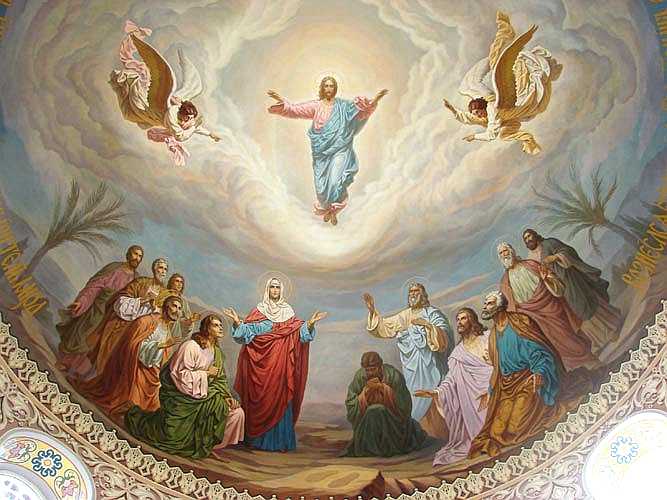The historical event of the ascension of the Lord Jesus Christ into heaven is of special significance in the Redemption of mankind. There are two main issues which are inextricably and directly linked with the ascension of the Saviour into heaven.
The first meaning of the ascension of Jesus Christ is the Lord giving man opportunity after death to be where dwells the Savior Himself. That is, the Lord in His ascension, opened to mankind the way to heaven. It is this value, you can often find statements of Jesus Christ Himself. In particular, the Evangelist John the Theologian so quotes the words of the Saviour in his gospel: "...and where I am, there my servant will be also" (Jn.12, 26); "when I am lifted up from the earth, will draw all men to Myself" (Jn.12, 32). Christ was the "Forerunner" in the case of accession of a person after his death into heaven. It refers to the Apostle Paul the Savior in the Epistle to the Hebrews (Heb. 6, 20). In this contexte "forerunner" is one who strides ahead, as if paving the way for the running back.
The second meaning of the ascension of Jesus Christ is comprehended from the dogmatic teaching of the Church, and also from the standpoint of the main goals of human life (theosis of the human nature, the attainment of Holiness, being God). So, in the ascension of the Saviour glorified human nature, because according to the teachings of the Orthodox Church, Christ was the God-man. The human nature of Christ was sanctified, ascended to heaven, thereby becoming prichastnye eternal divine glory. The Gospels say about the ascension as the return of the Son to the Father. But it is understood that after the ascension of Christ, God the Son ascended into heaven already with human flesh.
Thus, in the person of the Saviour is the return of man to God, sanctification of human nature, the ascension of human nature to heaven. That is why the feast of the ascension of the Lord celebrated in the Orthodox Christian tradition.
